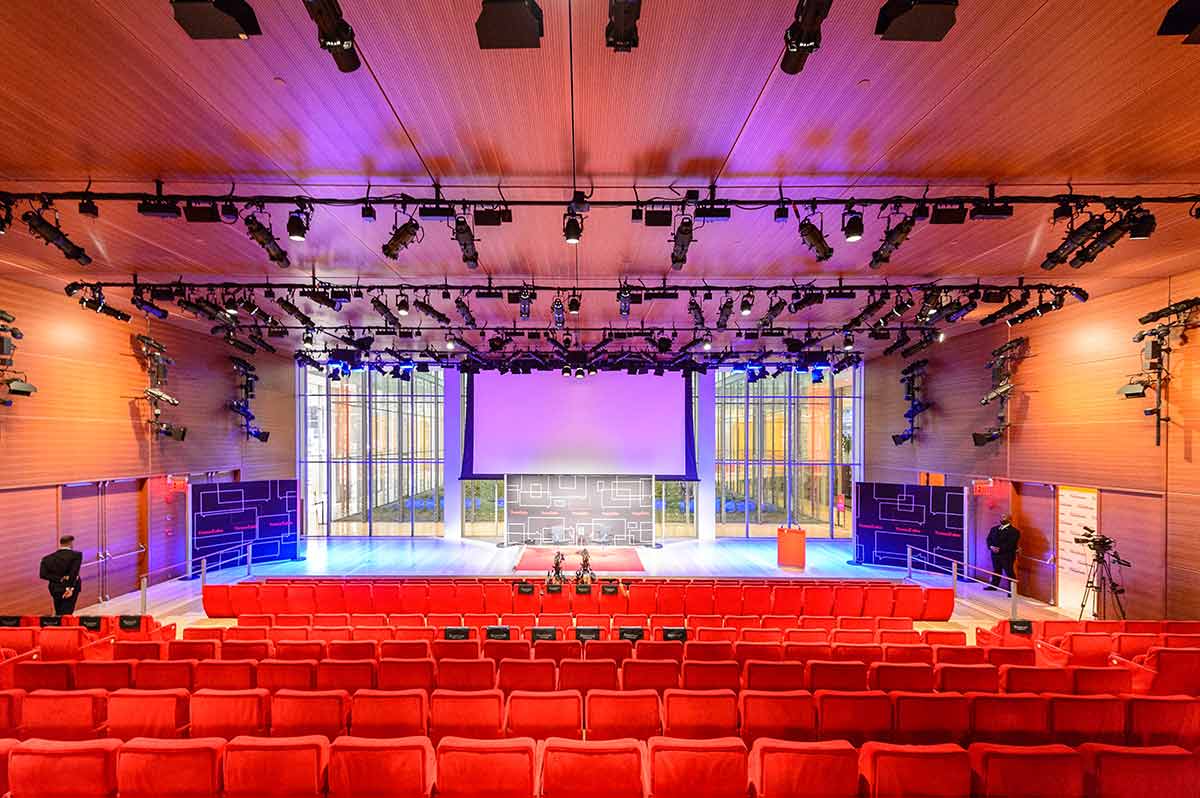
Charles Duhigg, senior editor of live journalism at The New York Times, has a unique metaphor for the relationship that the Times has with the millions following the newspaper’s presidential election coverage: “I think a lot of people see The New York Times as their politics drug-delivery system of choice,” he said. “That’s a great thing.”
The Times wants to offer those readers one last fix before the votes are all counted. On November 8, the newspaper will hold Election Night Live, an event that, in exchange for a $250 cost of admission, will let readers spend the evening with with both Times staffers (including executive editor Dean Baquet, CEO Mark Thompson, and a number of political reporters who will have very busy evenings) and public figures, including two members of Congress.
There will also be booze.
The Times attempted a similar, albeit less ambitious election-night event during the last presidential cycle. The effort is an attempt to offer roughly 300 of the newspapers’ most passionate fans a chance to both celebrate and understand a bizarre, historic election as it comes to a close. “People are trying to make sense of what is the conventional wisdom to come out of this election. It typically takes months to figure that out, and we want to let people in on that conversation in its early stages because I don’t think anyone is going to have answers to all the questions on election night,” Duhigg said.
I've spent a lot of election nights in newsrooms and it's great…but not $250 great. pic.twitter.com/AbGkgFaD6m
— Hannah Sampson (@hannahbsampson) October 21, 2016
If you want to be in a newsroom so much on election night, you could just cover my shift. I won't even charge you. https://t.co/MNc0cG2LfK
— Brian Root (@EdditorRoot) October 21, 2016
The event, which Duhigg says will be “fast-moving and fun,” will touch on many of the topics and questions that have been core to the campaign or will be to its aftermath. What are the big issues the next president will face in her (or his) first 100 days? Where does the Republican Party go from here? How did emotion and extreme rhetoric drive the debate on both sides of the aisle? Is Trump really that bad? Beyond the presidential race, there’ll also be discussions about the makeup of both houses of the next Congress.
“The reason why people love politics is not just because of who won or lost but because of the discussion of what it all means,” argued Duhigg. “We want people to learn some things about this race that they didn’t know before from really interesting sources. That’s kind of an audacious goal to say during a race where everything has already been covered like crazy for the last year.”
The event is the latest product of nytLive, the Times’ (annoyingly capitalized) events division that brings together big-name speakers to dish on major issues in politics, policy, and business. Previous events (which have been held in places like Athens, London, and Doha, along with in New York) have focused on topics like oil and gas industry, higher education, and the role of democracy in a changing world. The events division is key to the Times’ ongoing efforts to reduce its reliance on advertising and print revenue by, in part, finding new ways to to get money from readers themselves. Indeed, there’s evidence that the effort is already working: In its second quarter earnings, the Times said revenue for its “other” category (which includes news services, digital archives, rental income, and e-commerce) increased 4 percent compared to the previous quarter, thanks largely to its events business.Perhaps to emphasize that reader connection, the Times is pushing the idea that its on-stage interviews share DNA with the ones its reporters do at their desks every day. “We like to think of of these events as very genuine kind of live journalism,” said Duhigg. “Everything that happens on the stage is on the record. If a reporter asks a source a question on the stage and they say something interesting, the reporter can use that quote in a story the next day. All of it just happens to be occurring in front of an audience rather than on a telephone.”
Events like election night also serve to further another another one of the Times’ big goals: deepening its relationships with some of its most passionate readers. “The recognition that our most devoted readers generate the vast majority of our revenue will have a clarifying effect in setting priorities and confronting tradeoffs,” reads “Our Path Forward,” the newspaper’s October 2015 memo. “Instead of blindly chasing page views, we must thoughtfully build an audience of loyalists.”
That idea is very much on the mind of the Duhigg and the rest of the Times staffers heading up next month’s event. “People love politics and they love The New York Times. We help satisfy that craving they have to understand what’s going on with the campaign. We wanted to create an opportunity for people who feel that way about us and our coverage to come spend some time with us.”